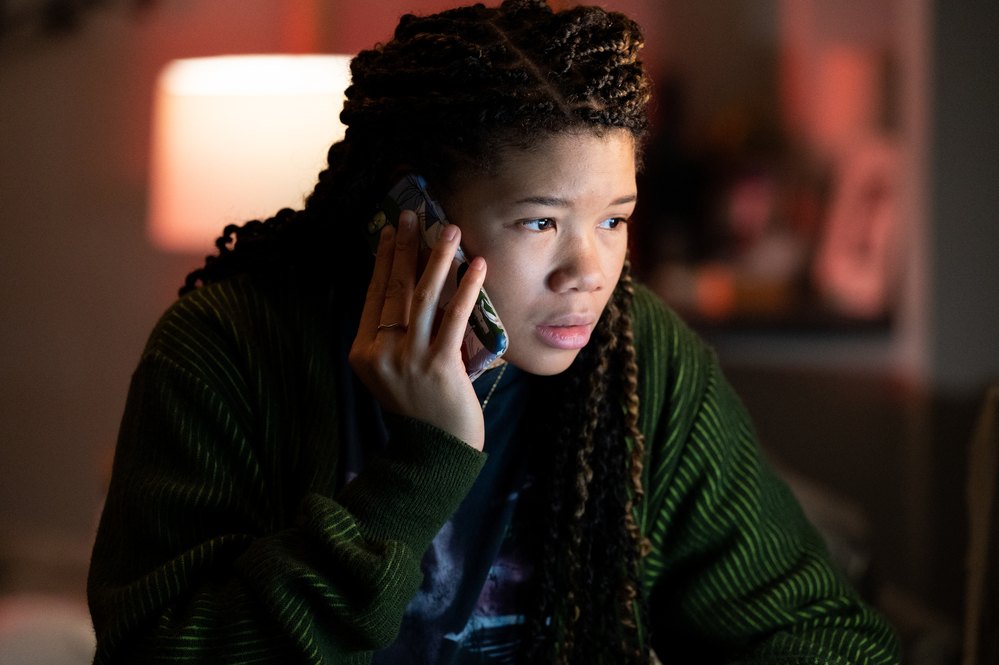Missing

Storm Reid stars in MISSING. (Photo: Sony Pictures)
Much has changed about the ways most of us broadly incorporate technology into our daily lives since 2018, when the inventive thriller Searching brought the “screenlife” concept to mainstream movies.
The narratively unrelated follow-up Missing lacks the same freshness in its central gimmick — which involves telling its story entirely through screens and camera footage. But more critically, it never musters the same level of suspense while grinding through a series of progressively illogical twists and contrivances.
Tailor-made for the age of cynical online gossip, social-media conspiracy theories, and media sensationalism, it should at least serve as a cautionary tale about online privacy and changing your passwords.
At any rate, the story follows June (Storm Reid), a teenager still grieving the apparent death of her father a decade ago, and now rebelling against the overprotective nature of her mother, Grace (Nia Long), who endures her share of tech challenges.
June is also not a fan of mom’s new boyfriend, Kevin (Ken Leung), but she sees their impending vacation to Colombia as an opportunity to throw a house party. However, when June arrives at the airport to pick them up days later, they never show.
Concern turns to panic as June tries to piece together her mother’s whereabouts. Armed with the power of Google, she checks into Kevin’s background, connects with a Colombian handyman (Joaquim de Almeida) willing to help, becomes frustrated with the authorities, and employs some amateur sleuthing from her favorite true-crime series. As hours turn into days, she uncovers secrets and isn’t sure who she can trust.
The film cleverly incorporates the visual trickery into its narrative framework in ways that seem mostly organic. The screenplay by rookie directors Nicholas Johnson and Will Merrick, the editors on the first film, milks a simple premise by keeping the pace lively.
Credit the actors for generating a convincing mother-daughter dynamic. Reid’s expressive portrayal enables June’s desperation to resonate before dwindling as the film turns more far-fetched in the final act.
All the red herrings and investigative dead-ends become exhausting to the extent it compromises the emotional investment in its exploration of fractured families and the value of human connection.
Allow Missing to be summarized by June’s best friend (Megan Suri), well before the convoluted finale: “Don’t you think this is a pretty big coincidence?”
Rated PG-13, 111 minutes.